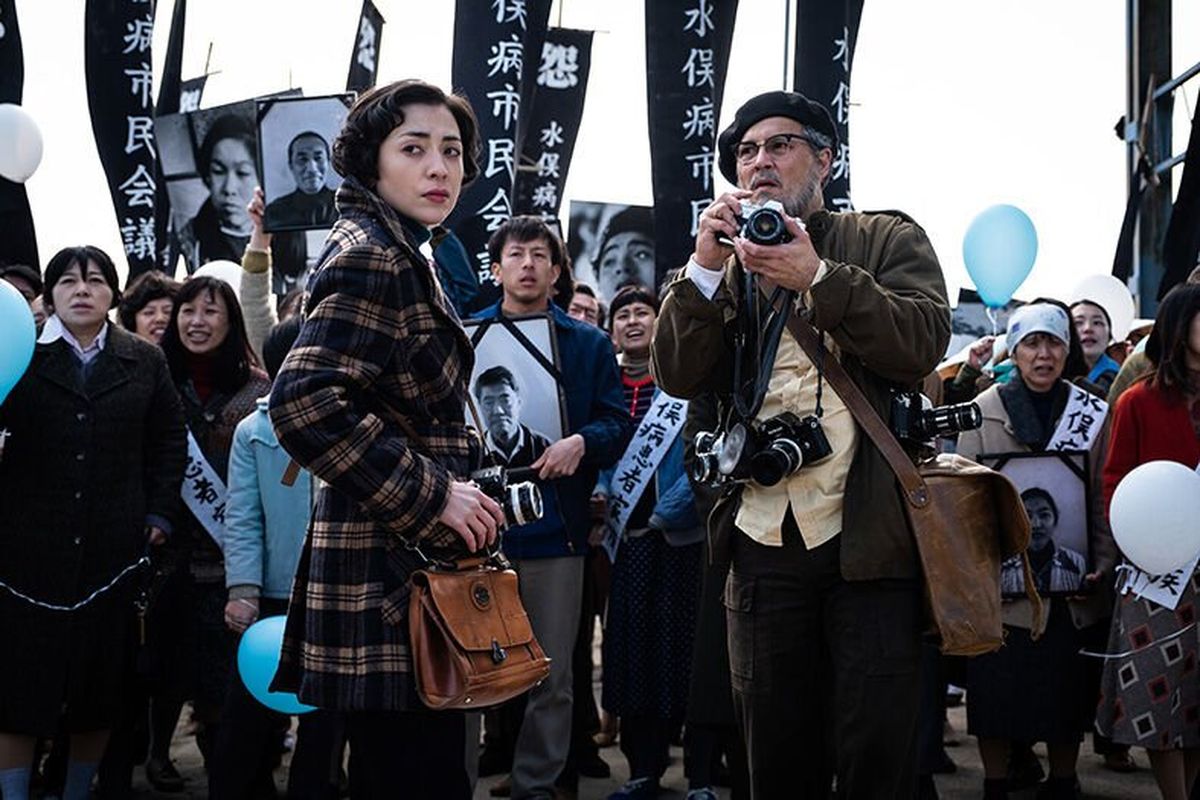Review: Johnny Depp dials down the ham in ‘Minamata,’ a true story of ecological disaster

With echoes of Michelangelo’s “Pietà,” photojournalist W. Eugene Smith’s evocative 1971 image “Tomoko and Her Mother in the Bath” depicts, with brutal honesty, yet also with a certain grace and dignity, the heartbreaking effects of mercury poisoning in the Japanese town of Minamata. The movie “Minamata” dramatizes the story of how that photo came to be taken by Smith (Johnny Depp), who lived and worked in Minamata in the early 1970s, where he documented what came to be known as “Minamata disease” – the result of toxic industrial wastewater.
Despite its poignant subject matter, much of the film feels like a pastiche of political thriller, romantic drama and tortured-genius cliches. A painter and sculptor turned filmmaker, Andrew Levitas makes choices that distract from the central crisis. But when he pays attention to the victims, “Minamata” finally comes into focus. The story opens with Smith’s career on the rocks; the photographer had made his name covering World War II and shifted to a project shooting and recording New York jazz musicians – including Thelonious Monk, who appears on the soundtrack.
But by 1971, Smith had become unreliable, and his editor at Life Magazine, Robert Hayes (Bill Nighy), doesn’t want to deal with him anymore. But Alieen (Minami), a Japanese interpreter, lures Smith back to work with a crucial assignment: to raise awareness of the disaster caused by the Chisso chemical factory, whose runoff has contaminated the fish in coastal towns like Minamata, leading to severe birth defects.
The film includes some fairly predictable tropes; Nighy plays Hayes as the archetypal cantankerous editor, and Chisso’s CEO (Jun Kunimura) might as well be twirling an imaginary villain’s mustache as he explains to Smith all the good things that his poisonous chemicals do. While it’s true that it was Smith who brought the story to a wider audience, “Minamata” – based on a book by Smith and his wife, Aileen – errs in relying too heavily on the artist and not his subject.
As Smith begins to meet with afflicted villagers, treating them with respect and compassion, Levitas dials down the heat – just as Depp lightens up on the ham. Although the former teen idol is best known for his over-the-top performances in the Pirates of the Caribbean films as the Keith-Richards-inspired Captain Jack Sparrow, Depp forgoes the cynical, drunken swagger for gentle scenes in which his aging, no-longer-pretty face reveals a hard-earned wisdom.
For all the film’s jarring tonal shifts – from agitation to contemplation and from the act of creation to destruction – composer Ryuichi Sakamoto’s plangent but never overbearing score does its best to bring together the disparate chords. One might have wished the whole film could have sustained the patient mood of its most successful scenes (which by and large do not feature its marquee player). But, as “Minamata” seems to suggest, real life is messier than that.